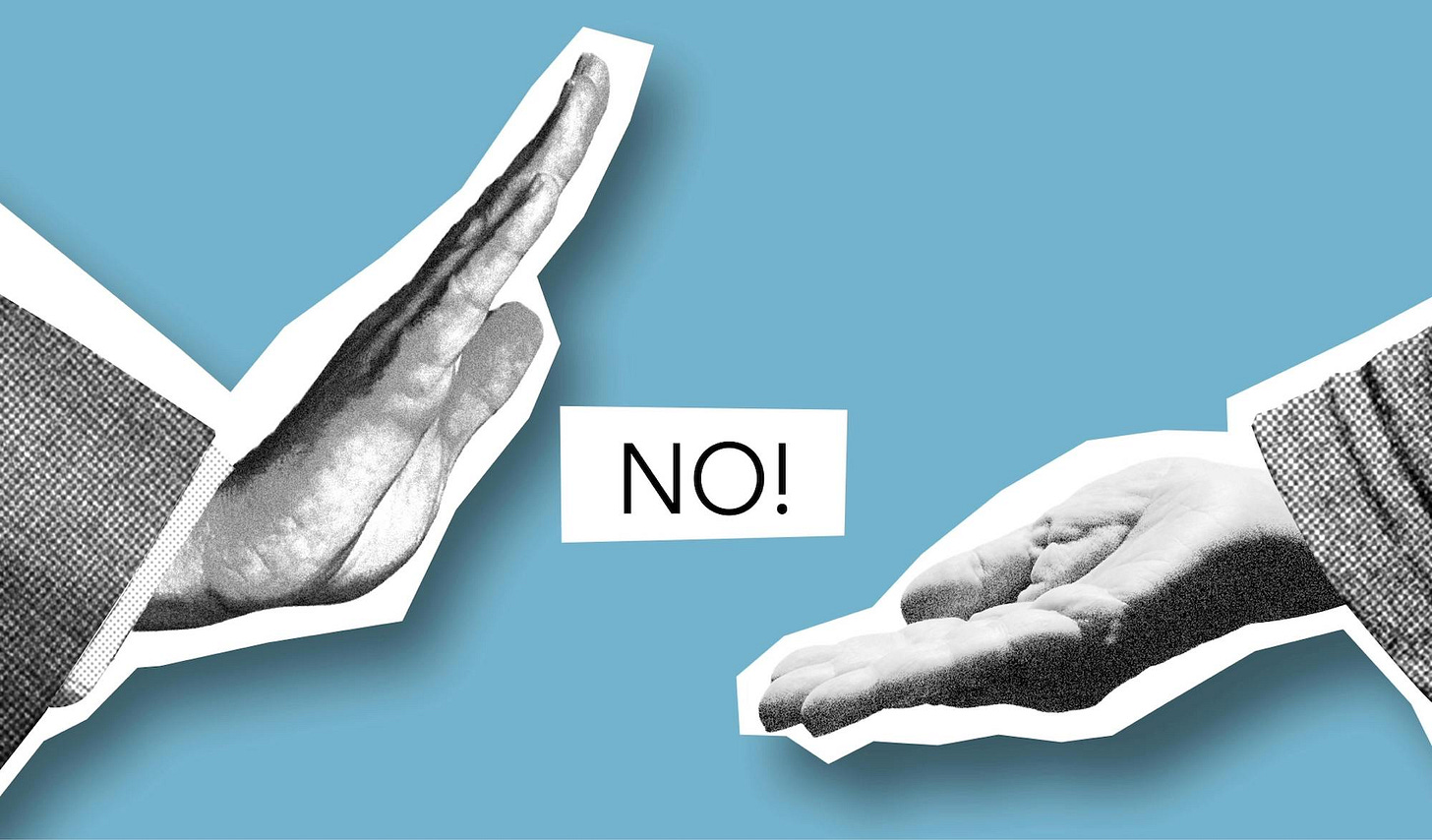
We’ve all been there. You’re catching up with a friend over coffee when bam!—that light, airy conversation you’ve been enjoying goes dark. They share something that feels like a wet blanket fell from the ceiling on your unsuspecting head.
You feel queasy, off-kilter. Maybe it’s the story itself, maybe it’s the way they said it. Maybe it’s the way their eyes go blank or, worse, stare straight into your soul.
You didn’t ask for this.
So how do you get out of it without feeling like a shitty person?
First, some education
The faux pas you just experienced is called trauma dumping. It is a break in the fundamental social contract and a violation of your right to a trauma-free life.
But remember: trauma dumpers are not bad people. They just have a mental disease that can only be cured by gloved professionals. It’s in their best interest, as well as society’s, that you aid them in getting the help they so desperately need.
Recognize the warning signs
No one should have to suffer the indignity of being trauma-dumped. You can successfully prevent the majority of occurrences by spotting trauma dumpers before you invite them into your circle.
A few common signs to look out for:
Tense or downturned lips
A constant, ‘plastic’ smile
Comments about ‘difficult’ parents
Bad posture
The impression of being smaller than they appear
Too few smile lines
Too many smile lines
No one is perfect
Even armed with education, you might still find yourself getting trauma-dumped. The most experienced dumper-spotter is still at risk of missing the subtler signs and more atypical presentations.
Covert trauma dumpers—sick people masquerading as sane, life-loving normies—are more common than you might think.
The key to navigating a trauma dumping experience is to resist shame. No one is perfect. If you find yourself getting dumped on, don’t panic. Remember that you are the bigger person. Focus on what you can control: your response.
Phase 1: Redirection
While tempting, it is risky to interrupt a trauma dumper mid-sentence. They may begin to display new types or intensities of emotion. For example, they may shift suddenly from depression to rage, or vice versa.
Instead, gently shape the conversation by showing your disinterest. Look at your watch, out the window, or at your shoes. If you’re in a public space with music, start humming along while tapping your feet. Avoid nodding your head, making eye contact, or making any sort of engaged noises or gestures.
This lets the dumper know that you are not playing their game while giving them a dignified way to abort their unholy mission.
When they read your signs or come to a natural stopping point, waste no time in guiding the conversation more firmly. Follow up with a direct question about their favorite Netflix show, your favorite Netflix show, or (if they seem particularly negative) their happiest childhood memory.
Phase 2: Advanced support
If redirection doesn’t work, the trauma dumper may be in need of more direct, explicit support. It’s time to escalate your response.
Here are some phrases you can try:
Everything happens for a reason
Have you tried going to therapy?
Forgiveness can heal you
You’re so strong now
A positive attitude can fix anything
Have you tried keeping a gratitude journal?
Daily exercise can help your mental state
What can you do better next time?
Try out these evidence-based support scripts until you find one that works for your unique situation. You’ll know you’ve hit on something when the dumper stops talking about the trauma and elects to redirect the conversation themselves.
Phase 3: Boundary setting
Unfortunately, not everyone responds well to reason and good intentions.
If the trauma dumper escalates their intensity (“now I’m even angrier”), starts blaming you for their disorder (“the way you’re responding makes things worse”), or tries to manipulate you into engagement on their terms (“is what I’m saying making you feel uncomfortable?”), it’s time to end the conversation.
If your ‘friend’ is a recurrent offender, it may be time to end the relationship.
Remember: by following these steps, you're not just protecting yourself—you're helping trauma dumpers learn appropriate social boundaries. Many reformed dumpers report feeling grateful for the tough love that helped them realize their behavior was unacceptable. By modeling healthy relationships, you’re creating a more civilized society—one interaction at a time.




I knew it sounded a little “simple” (judgment) for your thought process but I took it to “the first degree” as one says in French!! I enjoy the experience of people sharing their deepest, darkest secrets, and I engage in the same, however, sometimes it gets turned around into “it’s all about me” and “let’s have psychotherapy all around me.” I’m in the process of working on boundary setting with a fellow psychotherapist
Soooo good!! It must be my big brown eyes, lol, but I get trauma dumped on frequently, just before reading this actually, and not by my patients—by regular people!! Makes me feel I’m not alone in this